
by Marie Kléber | Dec 7, 2015 | 2015, Awareness, Childhood, Culture, Death and Dying, Education, Europe, France, Gun Violence, Identity, Life, Life Lesson, Media, Motherhood, News, Parenting, Peace, Respect, Responsibility, School, Stress, Terrorism, World Motherhood
 …and prevention is protection.
…and prevention is protection.
Now-a-days, we hear a lot about violence. Violence at home, bullying at school, harassment at work or on the street. Violence is everywhere. It does not define our societies or who we are but it plays an important role in our evolution and how we decide to define ourselves.
In the past couple of years, the French government put into place important measures to fight all types of violence, creating adds to show its impact on peoples lives, opening more helplines, dedicated centres to welcome the victims, creating new jobs and training programs. Many well-known artists took it over and started campaigns around the country and in the world.
Still, I think something is missing in order, if not to eradicate violence completely, at least to change the vision of men and women on the subject and prevent violence from spreading even more. Before discussing the impact of violence, people first have to be educated on what violence is, how to spot it and how to protect themselves from it.
We tend to think that violence is only physical. Is it something we learn as kids? Or are the other forms of violence too cruel to be true?
I met women who kept telling me that in their case, it was not violence. I met kids who kept telling me that other kids were just laughing at them, no big deal. I met men who kept telling me that if their bosses were that mean towards them, it was maybe because they were not that good.
If people don’t know or understand that the relationship they are in is poison, they won’t be able to get out of it or ask for help. And it will keep destroying them. Ads or campaigns won’t have any impact on their life. They will still think violence is horrible but they will think it has nothing to do with them.
I suppose we have to educate people from a young age. Maybe school is the first place to start, as violence can take root there for many. Teaching kids about respect and differences. Teaching them about what is not allowed, about their body and about the importance of equality. Boys are not better than girls and girls are not better than boys.
But first, we have to teach kids about confidence. In most cases, it’s the lack of confidence that takes people down. Teaching kids that they are important, that they are valued and loved, that they are worth it, beautiful, enough. I think this is crucial and it can change many things in our world these days.
I don’t say that confident people can’t be touched by violence, but they’ll have the resources, the power to face it and say stop to it. Or they’ll know something is wrong in the equation and they’ll be able to talk about it, to raise their voice.
Because, at the end of the day, silence is really the enemy, silence is what allows violence to thrive.
This is an original post from our contributor in France, Marie Kleber.
The image used in this post is attributed to Cyber Magic. It holds a Flickr Creative Commons attribution license.
Marie is from France and is living near Paris, after spending 6 years in Irlande. She is a single mum of one, sharing her time between work, family life and writing, her passion. She already wrote 6 books in her native langage.
She loves reading, photography, meeting friends and sharing life experiences. She blogs about domestic abuse, parenting and poetry @https://mahshiandmarshmallow.wordpress.com
More Posts - Website

by Ewa Samples | Dec 4, 2015 | 2015, Communication, Economy, Ewa Samples, Family, Feminism, Happiness, Home, Identity, Inspirational, Life, Life Balance, Motherhood, North America, Parenting, Polish Mom Photographer, Responsibility, USA, Womanhood, Work, Working Mother, World Motherhood

Photo credit: Iryna Ishchenko Photography
Sometime ago, I opened my email and saw this subject line in my inbox: “Mompreneur. Worst word ever.” At first it made me kind of irritated, and I almost moved that email to the trash without reading it. Then I actually read it. I wanted to see who and why would say that a word that describes a business woman who wears way more hats than anybody else, should be so shameful for using that word. At that point in my life I was very proud of using this word to describe myself, and I was curious, because maybe, just maybe, I was missing something. (more…)
Ewa was born, and raised in Poland. She graduated University with a master's degree in Mass-Media Education. This daring mom hitchhiked from Berlin, Germany through Switzerland and France to Barcelona, Spain and back again!
She left Poland to become an Au Pair in California and looked after twins of gay parents for almost 2 years. There, she met her future husband through Couch Surfing, an international non-profit network that connects travelers with locals.
Today she enjoys her life one picture at a time. She runs a photography business in sunny California and document her daughters life one picture at a time.
You can find this artistic mom on her blog, Ewa Samples Photography, on Twitter @EwaSamples or on Facebook!
More Posts - Website
Follow Me:





by Susan Koh | Dec 2, 2015 | 2015, Asia, Education, Girl Child, Inspirational, Motherhood, Parenting, Responsibility, Singapore, Susan Koh, Working Mother, World Motherhood

As parents, we desire to raise successful kids. But often the measurement of success can be so vastly different depending on our backgrounds, experiences and expectations. In Singapore, academic success is one of the top measures. Parents will sign up their kids for every enrichment and tuition centre in a heart beat, if it promises to improve their child’s grade.
For some, it could be developing their kids’ full potential in the area of music, art, or sports, and sending them to take every class to discover their talents from a young age. For others, it might be simply equipping their kids with the life skills to get them through whatever life throws at them, the kind of smart I prefer, “street smarts.”
Over the years, Singapore’s education system is slowly steering it’s direction from just developing book smart students to being more holistic, realising that there is more than one way to recognise our kids’ abilities.
I’m really glad about these changes as my daughter will enter formal education next year, and to be honest I wasn’t an ace student. Many times I felt that I was judged by how well I scored on my exams and if I disappointed my parents and myself when I didn’t achieve fantastic results. But over the years, I discovered that I have other talents and gifts that are just not related to how book smart I am.
Though I think my daughter’s pretty smart (okay, I’m a biased mom ), I know these changes to the education system gives me greater assurance that she will thrive when she starts school. But as a parent, I also have an responsibility in shaping who she is and my role is to give her roots and wings.
Roots and Wings
Just like a tree, in order for it to reach it’s fullest potential and stand strong to withstand the different elements, its’ roots must go deep and be firmly planted. These are the qualities I wish most for and I try to instill in her:
1. To be rooted in her identity
I want my daughter to be deeply rooted in the knowledge of her own identity. I want her to love herself for who she is and not strive to be someone else. I want her to recognize that she’s uniquely her, complete with her vivacious and vibrant personality, her sense of humour, and heart of gold.
2. To be rooted in character and values
Peer pressure will be a very real issue in school and that’s when our kids’ character and values are put to the test. As a parent, we have to ingrain values of honesty, compassion, integrity, kindness, responsibility, perseverance, and the list goes on. The best way to teach these to our kids? To model them ourselves.
3. To soar on wings of exploration
Besides having deep roots, I hope that my girl will develop wings to seek out the world. To be filled with curiosity and awe with a hunger to know more. I want to be the parent that says, ” That’s an interesting question, let’s find the answer.” and never to stop her from asking questions.
4. To have wings of independence
Our kids will grow up no matter how much we wish for them to remain cute and small. And the key is to ensure that they are equipped with life skills to see them through their days. As a young toddler, I’ve roped my girl to help around the house from picking up after herself, clearing her plate when she’s finished her meals, or loading the laundry.
As she gets older, she knows she has to be responsible for her belongings and pack her own bags. We’ve taught her what to do if she ever gets lost, and now she’s learning how to count money, an essential skill needed at the school canteen soon.
I also intend to teach how to manage her time wisely, budget and save, and maybe even cook. We can start from frying an egg!
As parents, it won’t be easy for us to let go of our kids when they eventually grow up, have their own ideas, friends and all. But when that day comes, we’ll be glad that our children are ready to soar high with their wings, knowing we’ve provided them with the skills to navigate the skies!
How do you help your child(ren) develop roots of responsibility and wings of independence?
This is an original post to World Moms Blog by contributor, Susan Koh from A Juggling Mom in Singapore.
Susan is from Singapore. As a full-time working mom, she's still learning to perfect the art of juggling between career and family while leading a happy and fulfilled life. She can't get by a day without coffee and swears she's no bimbo even though she likes pink and Hello Kitty. She's loves to travel and blogs passionately about parenting, marriage and relationship and leading a healthy life at A Juggling Mom.
More Posts

by Ann Marie Wraight | Nov 30, 2015 | 2015, Advice, Awareness, Being Considerate, Being Thankful, Caring, Childhood, Death and Dying, Europe, Gratefulness, Greece, Grief, Identity, Life, Life Lesson, Memories, Motherhood, Parenting, Relationships, Responsibility, Tragedy, World Motherhood, Younger Children
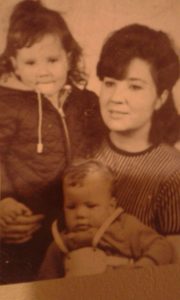
The last photo of the author and her brother with their mom.
There once was a little girl who lost her mother. She was too young to fully understand the concept of never. She had a secret belief that people were making a silly mistake when they gently explained that her mommy would never be coming home again.
The little girl secretly believed her mommy had just taken a long vacation. Her Daddy told her that Mommy was in a special type of hospital for people who were sick and needed to rest.
Since the little girl was smart and precocious, she imagined her mother had taken a much needed rest and gone on holiday with the traveling circus, which recently had been in town. Hadn’t Mommy admired the clowns and acrobats SO much? Wouldn’t this be a great way to get better after all the medicine the little girl had secretly seen her mommy take when she thought nobody was watching…
As the months and then years dragged on and Mommy didn’t come back, the girl started to realise that the traveling circus probably wasn’t the reason her mother had left.
Instead, she started to suspect that her parents had gotten a divorce and her father had custody of the 2 children since his wife was sick. This had happened to a boy in the little girl’s class at school.
She still couldn’t accept the fact her mother was gone for good.
Things began to get difficult at home and at school too. At first the other children were sympathetic because their teacher had told them that the little girl was going through difficult times at home and needed help and understanding from her classmates.
Eventually though, when the girl started coming to school with untidy hair and wearing grubby, mismatched socks, most of the kids started calling her names and telling her she was a freak.
She DID look and act weird, she knew. The sad truth was that she FELT like a freak, and that was even worse.
When other girls went on sleepovers and to birthday parties, on shopping trips and visits to the local swimming pool with their moms, the little girl wasn’t invited. The mothers felt awkward and embarrassed trying to organise these things with the girl’s father. The father said he needed his daughter to stay home and look after her little brother and he couldn’t spare her as he had to work. After a few kind attempts, the invitations dried up.
Although help was offered to the father at first, his depressed and confused mental health gradually repelled those who were trying to help him support his 2 young children. After losing all of his teeth and most of his hair due to extreme stress, he realised he couldn’t cope alone anymore. He suffered a nervous breakdown and was forced to go back to his country of origin to seek help from estranged relatives.
This is the traumatic beginning of my early life and the reason I lived in a fantasy world following the death of my mother, when I was just six years old.
My family had left England a few years earlier and gone to live in Australia for a better life. We really did have a perfect lifestyle for a couple of years until my beloved mother became sick and died of cancer before the age of 30.
I remember with utmost shock how I refused to believe my mother was actually dead. I’m staggered now at how I stubbornly clung to elaborate fantasies about her REAL whereabouts and my utter refusal to grasp reality.
The other thing I remember with clarity is the nastiness of some and the true kindness of others.
Although virtually everyone was supportive and helpful at first, this really didn’t last long. After a relatively short period of time, I became an object of ridicule and target for bullies. My father was going through his own catastrophic demise and I basically had to fend for myself as well as bring up my younger brother.
It’s not easy for a 6-and-a-half-year-old to cook, clean and look after herself and her 4-year-old brother as well.
I went to school looking unkempt and bedraggled most of the time and the fantasies I told about my mother must have scared my schoolmates, who knew she had passed on. I was called names and kids threw stones at me because I was so different from them. In my class I was the only one from a single-parent home at that time.
Nowadays, of course, single-parent families are commonplace. Back then it wasn’t the norm and other kids made me feel that somehow it was my fault; I was stigmatized.
Coming from another country and speaking with a different accent didn’t help either. I was unacceptably different on so many levels.
When I first met my Greek husband decades later, one of his relatives praised him for being such a good Christian, offering to marry not only a foreigner but an orphan too!!!
It seems that in many cultures the child is responsible and pays for the parents “crimes.”
I remember a limited amount of kindness during my formative years and so try my best to instill a sense of compassion and respect for ALL living things in my children. I tell them that it really doesn’t matter how many possessions a person has that gives them value but how they treat others that counts. The way they interact with others is the true measure of their worth.
As a result of my childhood, I know that the kindness and compassion we show to a person can shape their whole future, for better or worse.
If we could all impart this wisdom in our children, wouldn’t the world be such a better place?
Have you had any childhood traumas that have made you passionate about something in adulthood? How do you encourage your kids to show kindness to others?
This is an original post to World Moms Blog from our contributor in Greece and mum to two, Ann Marie Wright.
The image used in this post is attributed to the author.

Having lived in 4 different countries, Ann Marie finds it difficult to give a short answer about where she's from. She regards herself: Brit by birth, Aussie by nature, with a sprinkling of Greek and German based on her insatiable appetite for tasty food and chilled beer!
This World Mom has been married to her Greek soulmate for 16 years and they are the proud but constantly challenged parents of two overactive teenage boys. (She secretly wonders sometimes if she was given the wrong babies when she left the maternity clinic.) She can't explain the fascination and ability that her 13 and 14 year-olds show in math and physics or that both boys are ranked 1st and 2nd nationally in judo. Ann Marie can only conclude that those years of breastfeeding, eating home cooked meals and home tutoring really DO make a difference in academic and physical performance! The family is keeping its fingers crossed that---with the awful economic crash in Greece---continued excellence in math and/or judo will lead to university scholarships...
In addition to writing, enjoying a good glass of wine and movies, Ann Marie also works as a teacher and tends their small, free-range farm in the Greek countryside.
More Posts
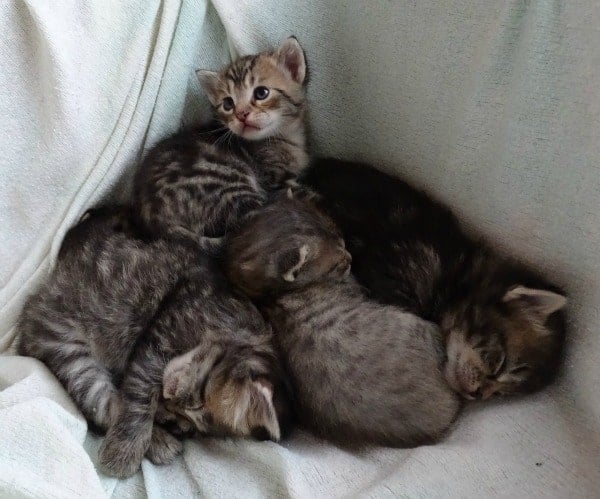
by Tina Marie Ernspiker | Nov 27, 2015 | 2015, Kids, Life Lesson, Living Abroad, Mexico, North America, Parenting, World Motherhood, Younger Children

As a wife of one and a mom of four, it seems like I am always learning and discovering! I know I am not alone. It doesn’t matter where we live, let’s just admit it:
The world is a big place, life is a lesson, and children can be the best teachers.
Here are my most recent insights and experiences as a Mexico Mom: (more…)
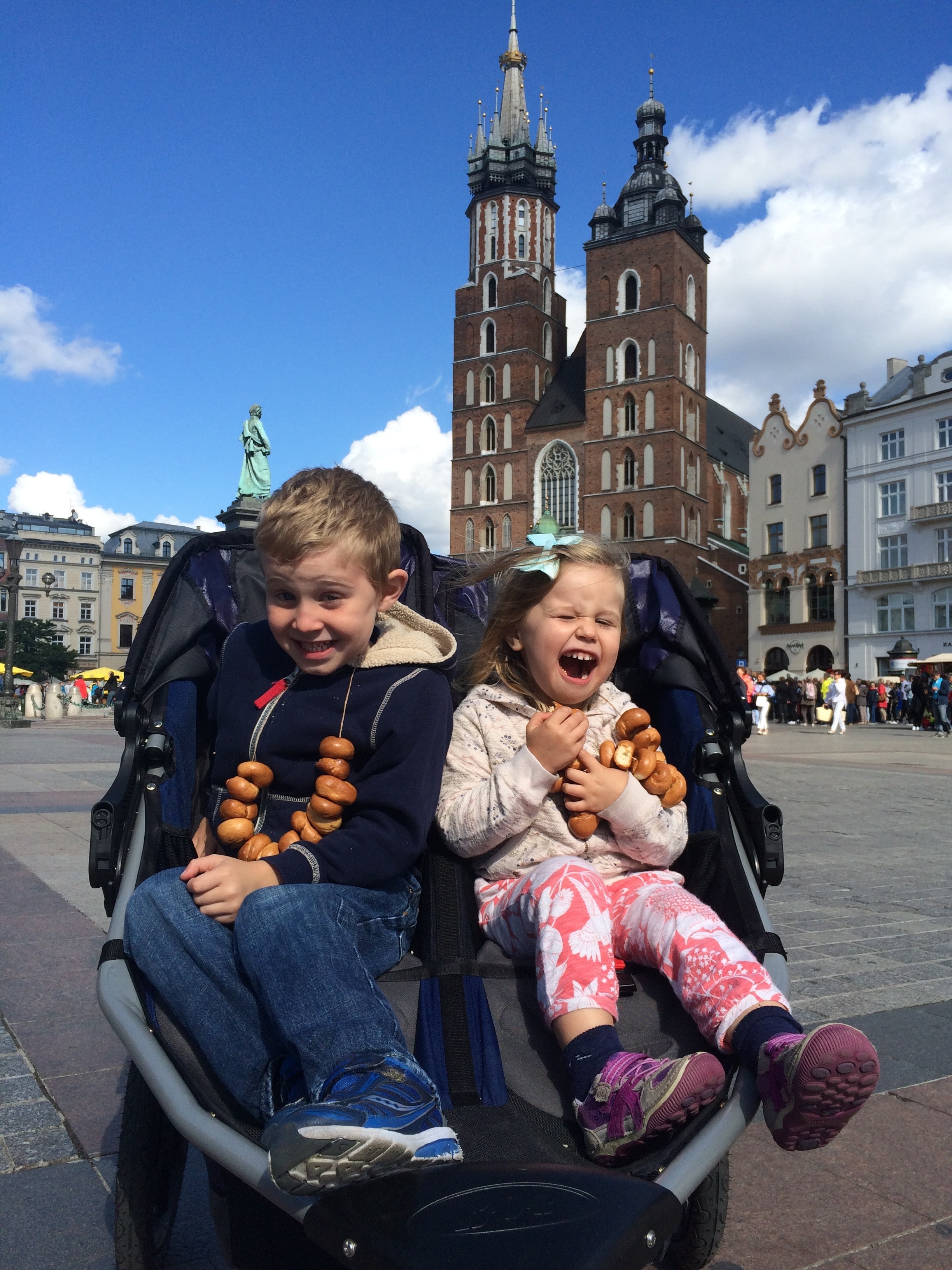
by Loren Braunohler | Nov 23, 2015 | Advice, Awareness, Being Thankful, Caring, Childhood, Europe, Expat Life, Family, Happiness, Independence, Life Lesson, Milestones, Motherhood, Parenting, Poland, Priorities, Responsibility, World Motherhood, Younger Children
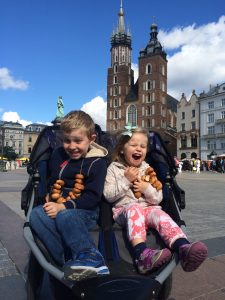
Can we just stay in a world where bagel necklaces solve all of our problems?
Shocked. Confused. Completely taken aback. That’s what happened the other day when I was watching my two young girls on the playground and elementary-aged kids came out to play. Horrible language, bullying, and throwing around malicious comments about looks, behavior, and sexual orientation.
Those words. Those attitudes. That scrutiny. I was so suddenly jolted from my innocent little world of swings and sand castles and hoisted into a “big kid” universe that I was disbelieving of what was happening around me.
I had so many questions. How do these kids even know these words? Should I do something to intervene? And then the realization hit. My children, now ages 5, 3 and nearly 2, will be thrown into similar situations in the not-so-distant future. And what would they do in this situation? Have I taught them to respect others? To be the right kind of friend?
And close behind became a second epiphany. These are the days. The days to appreciate. The days not to take for granted. I think I have problems when my 20 month old won’t go down for a nap on the first try. Or when my kindergartener drops an entire box of Cheerios on the floor. When my three-year old refuses to wear anything but her Olaf sweatshirt. When my toddler eats Play Doh. Problems. These are our “problems.”
Sometimes I find myself complaining, maligning the fact that my children can’t quite do things for themselves yet. After my encounter on the playground, I’ll keep my problems and multiply them by one hundred before wishing for my kids to grow up.
Yes, I’ll happily read “Old McDonald Had A Farm” 100 times in a row, help you put on your socks and velcro your shoes, and carry you when you are just too tired to walk anymore, because these “problems” are not really problems at all. They are tiny – nearly microscopic – bumps in the road to becoming independent.
And as not-so-subtly thrown in my face that day on the playground, I realized that as children grow up, their problems become more delicate, emotional, and serious. The problems that they face are more complicated and likely to impact others.
Can someone please find a way to make time stand still? Because I don’t want to get to the more serious stuff. I want them to stay young, innocent, and oblivious to mean behavior, bad language, and unforgiving situations. And I want my problems to revolve around Cheerios and Play Doh rather than the much, much harder stuff.
But try as I may, I can’t freeze time. They will grow up and make choices on their own. And when they reach that point, my hope is that the example I have set for them is to be kind; love others; empathize; have unwavering confidence in who they are; and surround themselves with the right people. If they adopt that attitude, maybe we will be able to navigate the real problems with greater ease.
Just a few weeks ago, I volunteered to read to my son’s class. He proudly sat in my lap as I read, and when we left school that day, he asked, “Mommy, can you go on the next field trip with us? You know mommies are allowed to go on field trips.” It didn’t take me long to find a babysitter for my younger two so that I could chaperone his next trip.
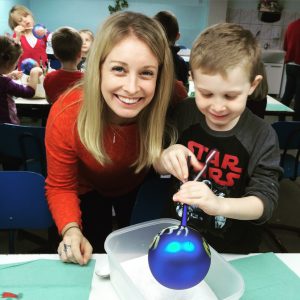
Happy to chaperone my son’s field trip to the ornament factory
I’m not going to let these days pass me by – these days when they are impressionable, eager to listen and learn, and want me around. I’m going to use them as wisely as I can. Instead of thinking I have problems when my toddler throws her winter hat off for the tenth time in one day or my three year old melts down when her brother doesn’t bring her something from the school bake sale. I will think about how trivial our “problems” are in comparison to the more grown-up situations they will soon face.
And I will use the extra time I have not obsessing over the small things but to teach them how to embrace the qualities that will serve them well on that critical day when they have to start making important choices on their own.
This is an original post to World Moms Blog from our mom to three and writer in Poland, Loren Braunohler.
The images used in this post are attributed to the author.

 …and prevention is protection.
…and prevention is protection.






















